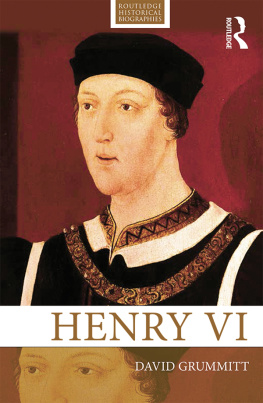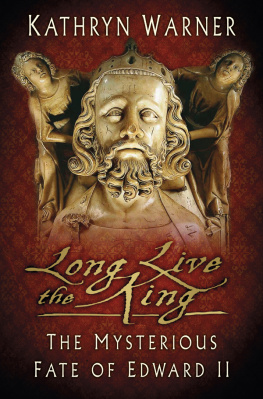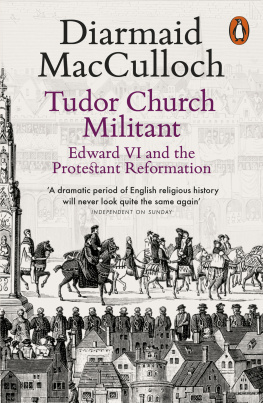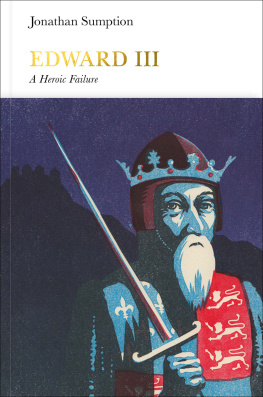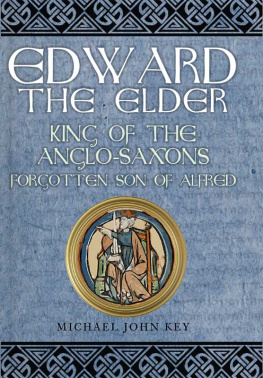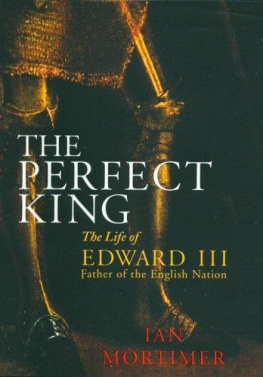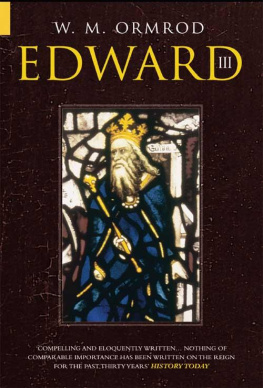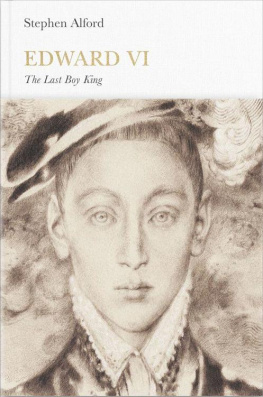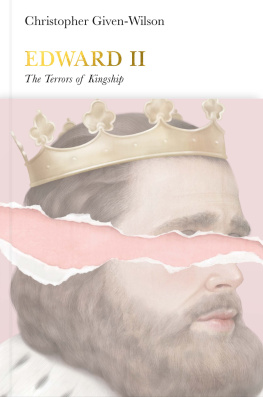Routledge Revivals
THE LIFE AND REIGN OF EDWARD THE FOURTH
THE LIFE AND REIGN OF EDWARD THE FOURTH
King of England and of France and Lord of Ireland
CORA L. SCOFIELD
IN TWO VOLUMES
VOLUMES II
First published in 1923 by Frank Cass and Company Limited
This edition first published in 2018 by Routledge
2 Park Square, Milton Park, Abingdon, Oxon, OX14 4RN
and by Routledge
52 Vanderbilt Avenue, New York, NY 10017, USA
Routledge is an imprint of the Taylor & Francis Group, an informa business
1923 by Taylor and Francis
All rights reserved. No part of this book may be reprinted or reproduced or utilised in any form or by any electronic, mechanical, or other means, now known or hereafter invented, including photocopying and recording, or in any information storage or retrieval system, without permission in writing from the publishers.
Publishers Note
The publisher has gone to great lengths to ensure the quality of this reprint but points out that some imperfections in the original copies may be apparent.
Disclaimer
The publisher has made every effort to trace copyright holders and welcomes correspondence from those they have been unable to contact.
A Library of Congress record exists under ISBN: 83049400
ISBN 13: 978-0-367-17793-5 (hbk)
ISBN 13: 978-0-429-05771-7 (ebk)
THE LIFE AND REIGN OF EDWARD THE FOURTH
THE LIFE AND REIGN OF EDWARD THE FOURTH
King of England and of France and Lord of Ireland
CORA L. SCOFIELD
IN TWO VOLUMES
VOLUMES II
Published by
FRANK CASS AND COMPANY LIMITED
67 Great Russell Street, London W.C.l
by arrangement with Longmans, Green & Co.
First edition | 1923 |
New impression | 1967 |
Printed in Holland by
N. V. Grafische Industrie Haarlem
CONTENTS
BOOK IVENGLAND AND FRANCE |
I. | READJUSTMENTS |
II. | A TREATY WITH THE DUKE OF BRITTANY AND A VISIT FROM THE SEIGNEUR DE LA GRUTHUYSE |
III. | A SETTLEMENT WITH THE HANSEATIC LEAGUE |
IV. | BARGAINS WITH BURGUNDY AND SCOTLAND |
V. | THE EXPEDITION TO FRANCE |
BOOK VLOUIS XIs PENSIONER |
I. | A QUIET YEAR |
II. | CLARENCE AND MARY OF BURGUNDY |
III. | THE END OF CLARENCE |
IV. | THE BISHOP OF ELNE |
V. | LOUIS DELAYS |
VI. | A VISIT FROM THE DUCHESS MARGARET |
VII. | WAR WITH SCOTLAND |
VIII. | GLOUCESTER INVADES SCOTLAND |
IX. | THE TREATY OF ARRAS AND THE DEATH OF EDWARD |
BOOK VIMISCELLANEA |
I. | EDWARDS RELATIONS WITH HIS COUNCIL, WITH PARLIAMENT, AND WITH THE CHURCH |
II. | THE MERCHANT KING AND SOME OF HIS FELLOW MERCHANTS |
III. | EDWARD AS A BUILDER AND AS A PATRON OF LETTERS |
APPENDICES |
BIBLIOGRAPHIES |
INDEX |
HENRY VI had been dead only a few hours when the Duke of Gloucester started for Kent with a part of the army that had returned to London with Edward, and the next day, while the funeral barge was on its way to Chertsey, the king followed his brother with the rest of the troops and with Clarence, Arundel, Rivers, Hastings, and other lords in attendance.1 Edward travelled slowly, for he stopped here and there to punish some of those who had assisted in the Bastard of Fauconbergs insurrection. He did not reach Canterbury until 26th May, and when he did arrive, he found a very repentant city and magistrates bedecked with white roses.2 No sudden display of devotion to the house of York, however, could save Canterbury from paying the penalty of her sins. Her liberties and franchises were taken from her; some of her citizens were hanged; many others were arrested, and Mayor Faunt, who before this time had been seized and placed in the Tower, was brought home to be kept in ward until a full inquiry could be made into the crimes attending the recent disturbances.3 But the tedious task of dealing with the mass of offenders in Kent was left to a commission to be appointed later and, after a short stay in Canterbury, the king went on to Sandwich, where the guiltiest of the guilty was abiding his coming. As the Bastard of Fauconberg had made an offer to surrender his ships as soon as he heard that the king and his army were starting for Kent, Gloucester had already gone ahead to receive the ships, and all that Edward had to do when he reached Sandwich was to accept the Bastards submission.1 This he did at once and then, leaving Sir John Scott in charge at Sandwich, the Earl of Arundel at Dover, Thomas St. Leger at Rochester, and a captain named John Brumston at Canterbury, he went back to London and took the Bastard with him.2 A few days later (4th June) the Archbishop of York was released from the Tower, and shortly after the Bastard of Fauconberg received his pardon and undertook to serve under the Duke of Gloucester in the marches towards Scotland. Letters of protection were granted to the Bastard on 16th June, and he probably went north with Gloucester soon after.3
When Edward returned to London from Kent in May, 1471, he must have felt that he was master of England as he had never been master of her before, since not only was his long struggle with Warwick over, but the great earl whose power had been only less than his own had dragged down to the grave with him both Henry VI and Henry VIs son. The only surviving representative of the house of Lancaster was young Henry Tudor, and the likelihood that those who had been ready to fight against all odds for Henry VI and his son would extend their devotion to the son of Margaret Beaufort and Edmund Tudor seemed slight. Probably the bitter experiences of the last ten years kept Edward from supposing that, even under these circumstances, the last stubborn adherent of the house of Lancaster would accept defeat, forget a lost cause, and become his loyal subject; and though to outward appearances he had forgiven Clarence, he knew that so long as Clarence lived there was one potential, if not actual, traitor in his own family circle. All things considered, however, the future looked much less difficult than the past had been, and the victory begun at Mortimers Cross and Towton now appeared to be complete.
But if out of the troubles of the last ten years Edward the king had come forth triumphant, Edward the man, sad to say, had gone down in defeat. Very different from the brave, frank, generous, well-intentioned youth who had taken the crown from Henry VI with Warwicks aid in 1461 was the man who came back to England in 1471 to slay Warwick on the battlefield and Henry in a dungeon in the Tower. Edward of York was still a young man in 1471, for the battle of Towton was fought a few days before, the battle of Tewkesbury a few days after, his twenty-ninth birthday. He was also a brave man still. But ten years of kingship had taught him many bitter truths, and adversity, instead of making him wiser and better, had coarsened and brutalized him.


